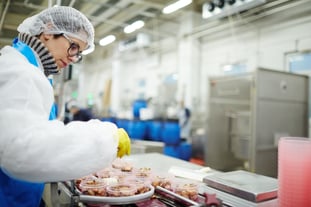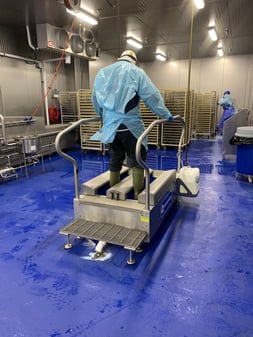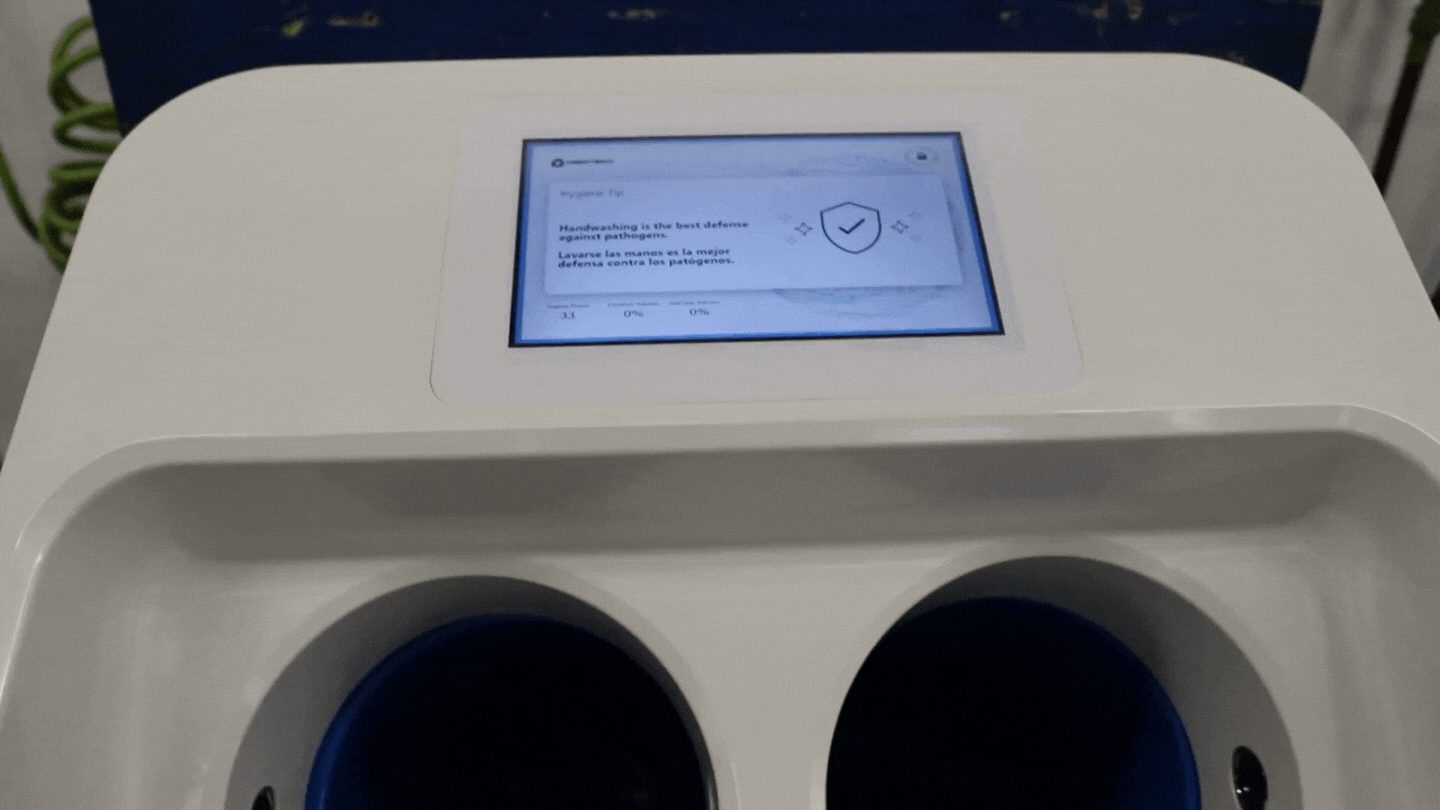Preparing for Successful Food Safety Inspections
Prioritizing food safety is an absolute must in any food processing facility. It's not just about keeping the products high quality, but also about safeguarding public health. Acing inspections from regulatory authorities is key to ensuring optimal food safety. In this blog, we'll delve into essential strategies for effectively preparing for and nailing food safety inspections in food processing facilities.
Understand Food Safety Regulations and Standards
 To kickstart a successful food safety inspection, it's absolutely crucial to have a solid grasp of the regulations and standards that apply to your facility. These regulations may vary depending on factors like location, product type, and processes. So, it's important to make sure that your team is well-versed in the current regulations set by the Food and Drug Administration (FDA) in the United States, as well as any local or regional authorities.
To kickstart a successful food safety inspection, it's absolutely crucial to have a solid grasp of the regulations and standards that apply to your facility. These regulations may vary depending on factors like location, product type, and processes. So, it's important to make sure that your team is well-versed in the current regulations set by the Food and Drug Administration (FDA) in the United States, as well as any local or regional authorities.
Implement Robust Food Safety Documentation
Keep your paperwork game strong when it comes to preparing for food safety inspections. Accurate and meticulous documentation is an absolute must. You need to have detailed records of all your processes, ingredients, suppliers, cleaning schedules, and employee training. Don't forget to stay on top of these records and keep them well-organized because inspectors love to dig into them and make sure you're playing by the rules.
Establish Strong Food Safety Standard Operating Procedures (SOPs)
 Craft crystal-clear and all-encompassing Standard Operating Procedures (SOPs) for every crucial process within your facility. From the moment raw materials arrive to the final packaging of your products, leave no detail unattended. Remember to consistently review and update these procedures to stay in sync with industry best practices and comply with any regulatory changes that may come your way.
Craft crystal-clear and all-encompassing Standard Operating Procedures (SOPs) for every crucial process within your facility. From the moment raw materials arrive to the final packaging of your products, leave no detail unattended. Remember to consistently review and update these procedures to stay in sync with industry best practices and comply with any regulatory changes that may come your way.
Invest in Employee Food Safety Training
Your team members are the superheroes of food safety! They play a vital role in upholding the highest standards and ensuring the safety of your products. It's crucial to continuously provide them with top-notch training on proper hygiene practices, sanitation procedures, and the safe handling of ingredients and products. Make sure each team member receives ongoing training that is customized to their unique role and responsibilities.
Download food safety training resources in our Food Safety Toolbox
Implement a Hazard Analysis Critical Control Point (HACCP) Plan
A HACCP plan is like guide to identifying, evaluating, and managing potential hazards in food production. It's crucial to create a HACCP plan that perfectly suits your facility's unique processes. This plan should clearly lay out the critical control points, monitoring procedures, corrective actions, and verification steps to ensure that your food is always safe.
Conduct Food Safety Self-Inspections
Regular self-inspections are a valuable tool in identifying potential issues before the official inspection. It is beneficial to assign a dedicated team to conduct mock inspections using the same criteria as regulatory authorities. This proactive approach enables you to promptly address any deficiencies and ensure the highest standards of food safety.
Learn how to perform a hand hygiene audit at your facility
Maintain Food Safety Equipment and Infrastructure
 You absolutely must keep your equipment and infrastructure in tip-top shape to prevent any contamination and guarantee the safety of your products. Make sure to regularly schedule servicing and cleaning for your equipment, and establish protocols for routine maintenance to avoid any unexpected breakdowns that could potentially wreak havoc on your production and compromise the safety of your food.
You absolutely must keep your equipment and infrastructure in tip-top shape to prevent any contamination and guarantee the safety of your products. Make sure to regularly schedule servicing and cleaning for your equipment, and establish protocols for routine maintenance to avoid any unexpected breakdowns that could potentially wreak havoc on your production and compromise the safety of your food.
Learn about automated boot scrubbing equipment
Practice Good Hygiene and Sanitation for Food Safety
Promote a culture of cleanliness within your facility by regularly cleaning and sanitizing all areas, including production floors and storage spaces. Consider implementing a color-coding system for cleaning tools to effectively prevent any cross-contamination.

In the ever-evolving world of food safety, technology plays a pivotal role in boosting efficiency and consistency. One particular innovation that stands out are automated hygiene technology. By incorporating automated hygiene into your food processing facility, you can take your preparation for successful food safety inspections to a whole new level. Our CleanTech® Automated Handwashing Systems and footwear sanitizing units ensure that every aspect of the hygiene process is standardized and consistently followed. With these cutting-edge technologies in place, the risk of contamination is significantly reduced, and stringent hygiene protocols are maintained. When inspectors witness the implementation of advanced solutions like those from Meritech, it demonstrates your commitment to embracing state-of-the-art technology for upholding the highest standards of food safety and cleanliness.
Learn more about automated hygiene
Welcome Food Safety Inspectors with Confidence
When the big day of inspection finally arrives, it's time to put on your game face and show those inspectors what you've got! Make sure you're well-prepared and ready to tackle any questions they throw your way. Have all your documents in order and be prepared to address any concerns or findings that may arise in a prompt and professional manner. Remember, you've got this!
Successful food safety inspections are a true testament to the unwavering dedication your food processing facility has in delivering safe and top-notch products. By diligently implementing these strategies and consistently enhancing your food safety practices, you not only achieve inspection success but also build trust among consumers and regulatory authorities, ensuring their satisfaction with your products. Keep in mind, food safety is an ongoing commitment that requires a steadfast devotion, constant watchfulness, and an unrelenting pursuit of excellence.






